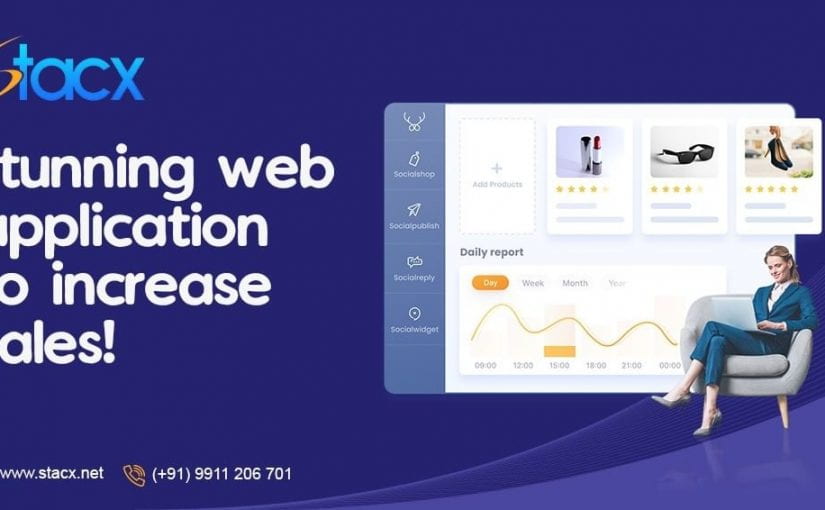
Cloud services(AWS managed services) can be massively scalable. This means that either the cost of your service (or your company) will remain relatively constant, or it can grow as fast as you like without massive overhead costs. This is especially useful for online companies that hope to expand rapidly with high growth rates without hiring massive teams of engineers and computer scientists. Scalability in Cloud Computing refers to the ability of a business’s (or individual’s) operation to change size without notice, allowing them to use exactly as many resources as they need. Here are some core benefits of cloud scalability:
Cost Efficiency
Because cloud computing allows you the freedom to only pay for what you need, this means there is no reason you should ever not take full advantage of resource allocation. It is incredibly efficient because you pay for what you use to avoid paying for overages, services that are no longer needed, and overhead costs from unnecessary infrastructure.
Time Efficiency
Cloud Scalability means that a company can grow at any pace without feeling the pressure of hiring teams of engineers to develop new infrastructures or features. Like AWS managed cloud services are considered to be one of the most powerful cloud platforms. This way, a company can spend more time focusing on its core business instead of worrying about its architecture. For example, Dropbox was able to scale from 0 to 100s of 24×7 systems in just 8 months with Heroku Dynos, which allowed them cross-continental data centers and users worldwide in days, not weeks When they were approached by Salesforce for an acquisition offer, it was incredibly easy for Dropbox to deal with the transaction without any limitations.
Reliability
Because cloud services are scalable, this means that if something goes wrong you won’t have wasted anything other than time and a little bit of money. You are free to experiment with different services, features, and infrastructures without worrying about wasting your company’s time or money.AWS manage services are the best services one can rely upon. If something goes wrong, you can usually reshuffle things easily by using the same architecture used in the beginning. As long as your core business is working efficiently it will be easy to fix any bugs or problems that come up.
Isolation
As each “cloud” service is isolated from other services,like the AWS managed services, this means you can test out different infrastructure components to see what works best for your company before committing to one infrastructure provider. This way you don’t have to worry about being locked into a certain service that may not work for you, because you are free to switch at any time without having wasted too much money and resources on something that doesn’t fit your needs.
Mobility
Your data cores and business logic should be able to move quickly between multiple providers without running into compatibility errors or additional overhead costs. You should never feel like all of your eggs are in one basket, instead spend as little time as possible dealing with the task at hand and let cloud scalability deal with your needs.
Scalability
Every company is different, which means that cloud scalability should fit every companies’ needs, even if it’s still undefined or changing rapidly. Cloud services are built to scale up or down depending on your budget, resources, and infrastructures available. If you want to grow fast then you can use more powerful servers, if you need to keep things cheap then you can opt for something that’s more cost-effective. This means you don’t have to spend time worrying about infrastructure costs and scaling, instead let AWS managed cloud services do it all for you.
Examples of cloud scalability
Scalability is everywhere – it’s one of the main features that makes cloud computing so great. It can be taken advantage of to provide solutions for virtually any small to large business… examples are below:
1) Dropbox was able to scale from 0 to 100s of 24×7 systems in just 8 months with Heroku Dynos, which allowed them cross-continental data centres and users worldwide in days not weeks. When they were approached by Salesforce for an acquisition offer, it was incredibly easy for Dropbox to deal with the transaction without any limitations.
2) Netflix is a perfect example. They need to make hundreds of thousands of requests per second at peak times (90th percentile), which requires an incredibly large and scalable
infrastructure. Using AWS, Netflix has been able to scale its computing and storage needs in a matter of minutes.
3) Rovio launched Angry Birds completely in the cloud to handle instant demand when they initially released it. They were even able to add another server in just seconds if needed.
4) In 2012 Akamai’s services were used during one of the biggest traffic surges ever seen on the internet – 4th quarter sales from Black Friday through Cyber Monday increased by nearly 40% year over year. Through Akamai, online retailers are able to make sure that no matter how many people went on their site at once or how much data they were using, it would be distributed efficiently and not cause any downtime or slowdown.
5) Amazon Web Services (AWS managed services) is a great example as well – they used scale to create Amazon EC2 which allows users to launch large amounts of servers in minutes. Amazon has been able to do this with no loss of performance and virtually infinite scaling for over a decade now, still continuing to help its customers grow even faster than before.
Conclusion
Every company is different, which means that cloud scalability should fit every companies’ needs, even if it’s still undefined or changing rapidly. Cloud services are built to scale up or down depending on your budget, resources, and infrastructures available. If you want to grow fast then you can use more powerful servers, if you need to keep things cheap then you can opt for something that’s more cost-effective. This means you don’t have to spend time worrying about infrastructure costs and scaling, instead let cloud services do it all for you.



